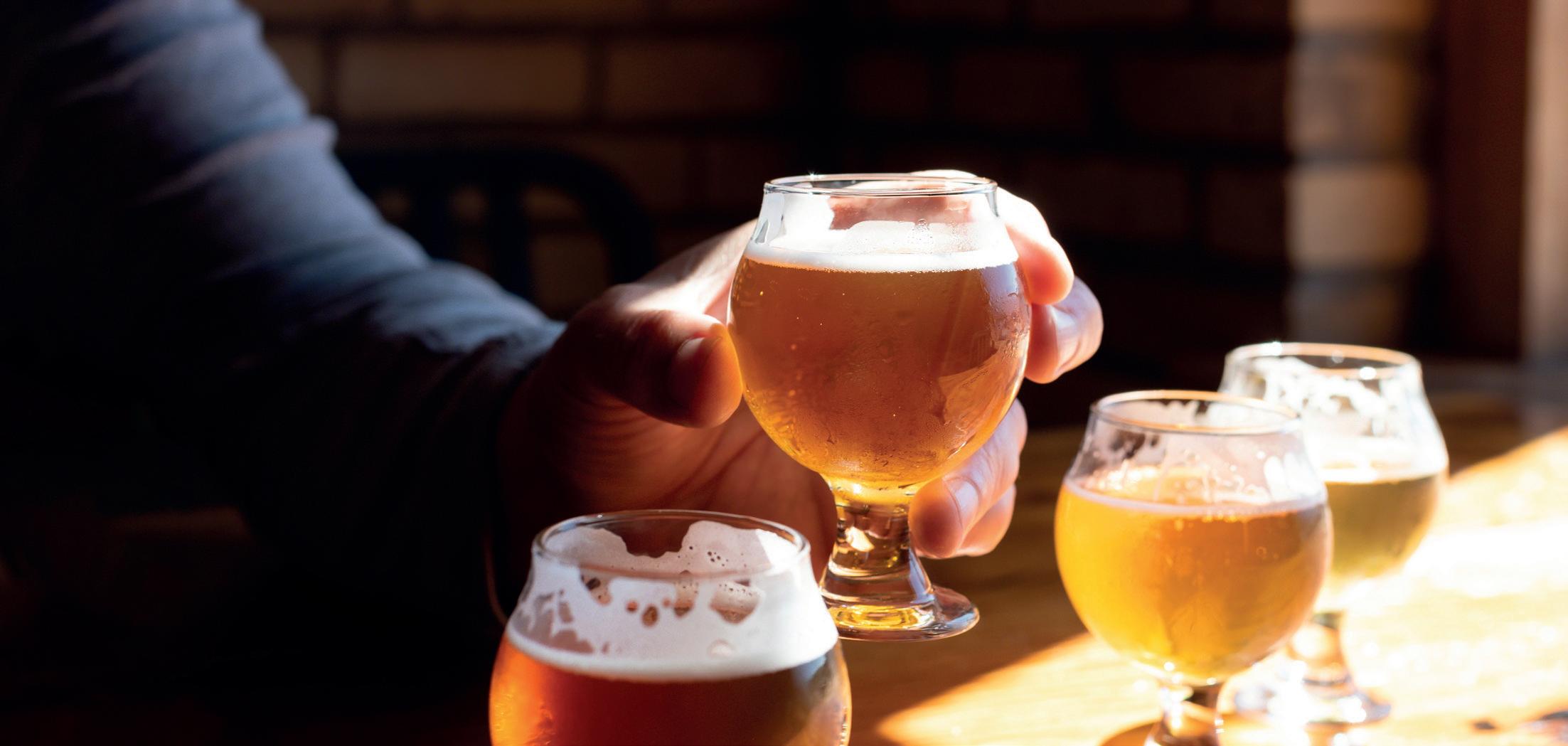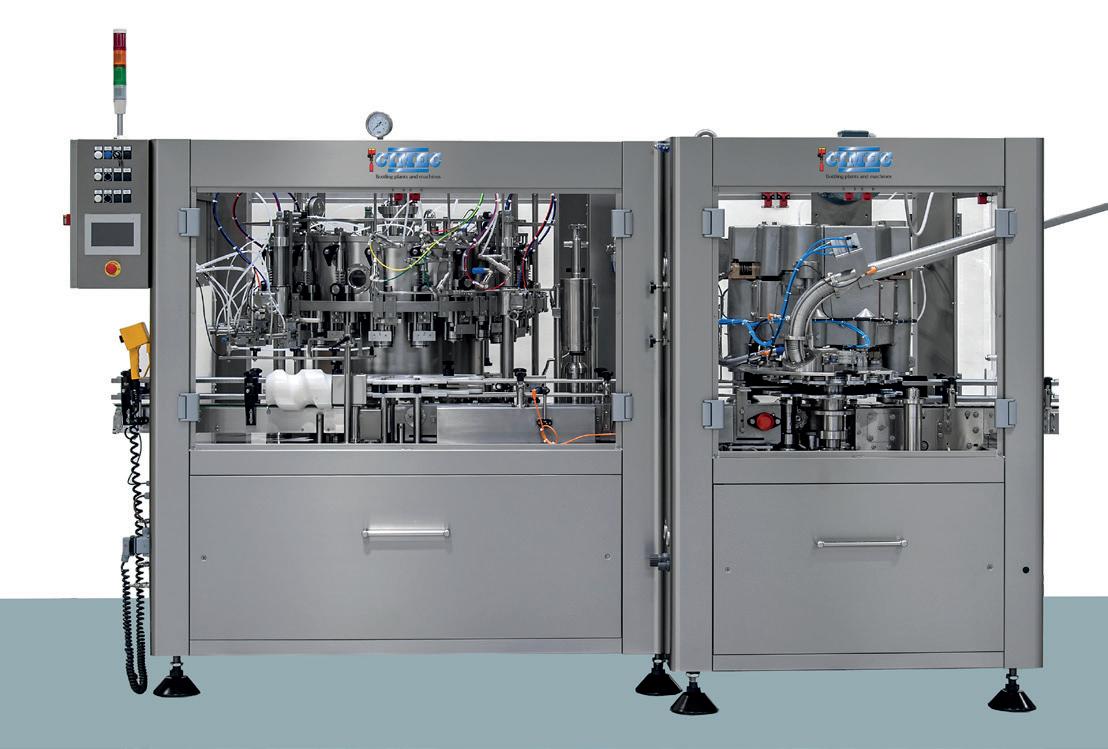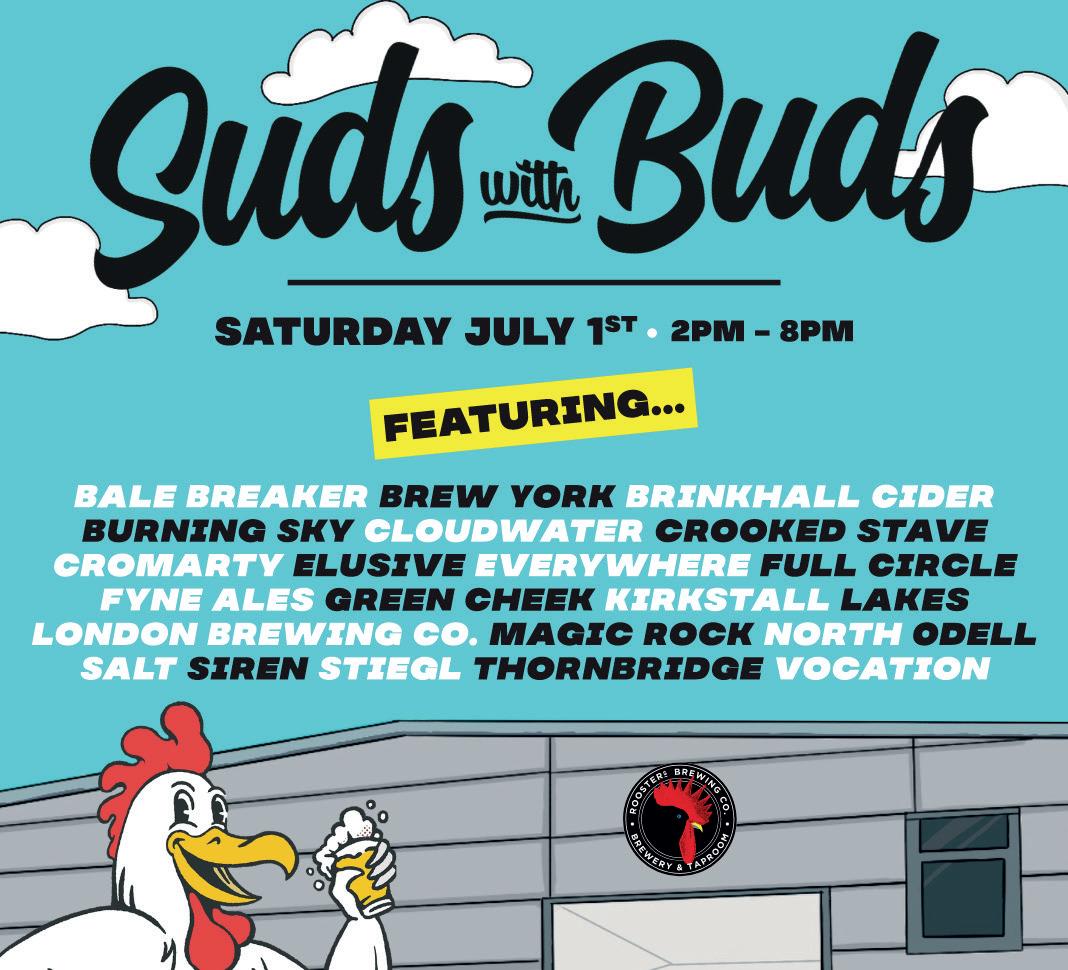
3 minute read
Why Drink Cask Fresh?
Beer writer extraordinaire Pete Brown on what the Drink Cask Fresh campaign is trying to achieve and why cask beer deserves saving…

There’s a pivotal bit in Shakespeare’s King Lear, where the vain old king’s two scheming daughters are dismantling his authority. If he’s staying with them in their castles, he doesn’t actually need quite so many soldiers of his own, does he? Does he really need 50? 10? Finally one daughter, Regan, asks: “What need one?”
“Oh reason not the need!” explodes Lear. It’s not about needing his entourage for practical reasons. Sometimes it’s just nice to have things. If we only talk about what we need, we’re no better than animals.
I think about this speech often when I hear conversations along the lines of, “Do we still need cask ale?”
Cask ale was saved for the nation when the only alternatives were twiggy, stale keg bitter and fake continental lagers. Now, we have every beer style in the world freely available in bottle, keg and can. The old idea that you can’t have good keg beer and that cask is always best has all but disappeared. Cask, meanwhile, is less visible on the bar, harder to keep, and provides a lower margin than most other beers on the bar. So.
What need cask?
Oh reason not the need!
If cask ale were to be allowed to disappear, it would be an embarrassment to British beer drinking culture and our national reputation more widely. Can you imagine the Germans ‘losing’ authentic Pilsner lager? Or France declaring it could no longer be bothered to do champagne properly? The country would be seen as careless at best with an icon that defines its global appeal.
Yes, cask is doing badly and is beset by problems. Its sales decline is now so dramatic that wide scale intervention is required. The issues break down into three: cask’s variable quality; its low margin compared to other beers; and a lack of salience and relevance, particularly among young drinkers. It’s up to the industry to sort out the first two issues internally, and it would be brilliant if they got on with it. In a perfect world, these would both be sorted before the consumer-facing issues are addressed, so we could be sure that if we did encourage new people to try cask, they wouldn’t be disappointed.
But last year, CAMRA and SIBA decided they couldn’t wait any longer. Cask was doing pretty badly in 2019, before the pandemic. And it’s still 20 per cent down on its pre-pandemic volumes, faring far worse than any other segment of the beer market.

Market research consistently shows that drinkers don’t regard cask as a drink for old men with bellies, beards and sandals. Only people within the industry repeat that tried trope to each other.
In some ways the truth is worse: cask simply stands for nothing it all.
Look at this from a glass half-full perspective though, and it means cask has a blank canvas. There are no negative stereotypes to break down. We just need to create an argument as to why it might be relevant to beer drinkers who currently shun it.
This is what the Drink Cask Fresh campaign has set out to explore. People who currently favour world lager want their beer to be fresh, and believe bottle lager is way fresher than a beer that’s probably been brewed locally a few weeks ago and only spends three or four days on the bar. Will telling them that cask is actually the freshest beer change their attitudes towards it? We don’t know. We hope so. But we’re also talking to them about sustainability, flavour and craft, to see if those messages have more appeal.
As I write this, the trial of the Drink Cask Fresh campaign is complete, but it’s still too early to see any results. For 10 weeks, 30 pubs have been running the campaign, each one paired with a very similar pub that has had no campaign materials. Now we have to crunch the numbers to see if the campaign made a difference.
Early indications are that saying anything at all about cask, simply raising its profile relative to other beers that have vastly bigger marketing budgets and immensely larger fonts on the bar, stirs the interest of the curious drinker. Perhaps they don’t want to know about secondary conditioning in the cellar. But they do want to know more about what they see as a premium quality product, one that hasn’t spoken directly to them before now.
Does the millennial or Gen-Z drinker need cask ale? They seem to be getting on fine without it. But reason not the need! When someone discovers the right cask beer for them, it becomes more than just another drink in their ever-expanding repertoire. Cask is only alive today because it inspires drinkers, publicans and brewers to regard it as something far greater than what’s in the glass. Can beer more broadly really afford to lose that magic?










